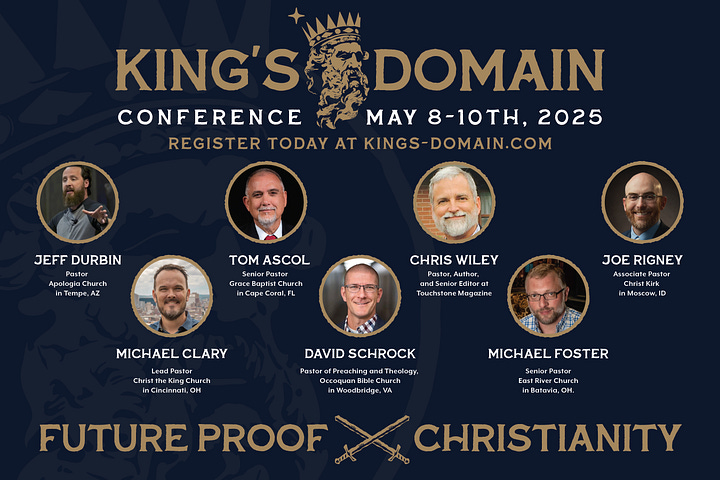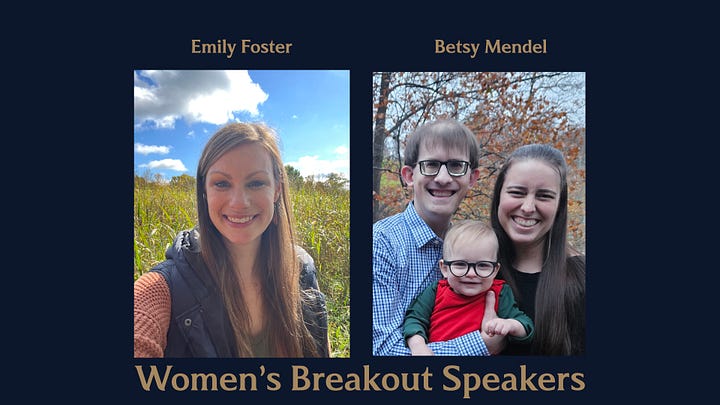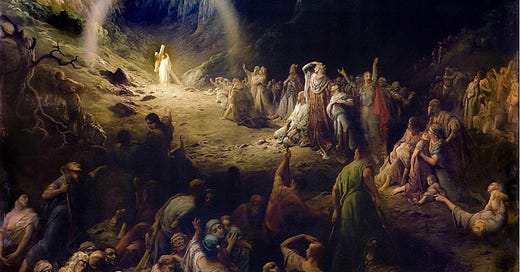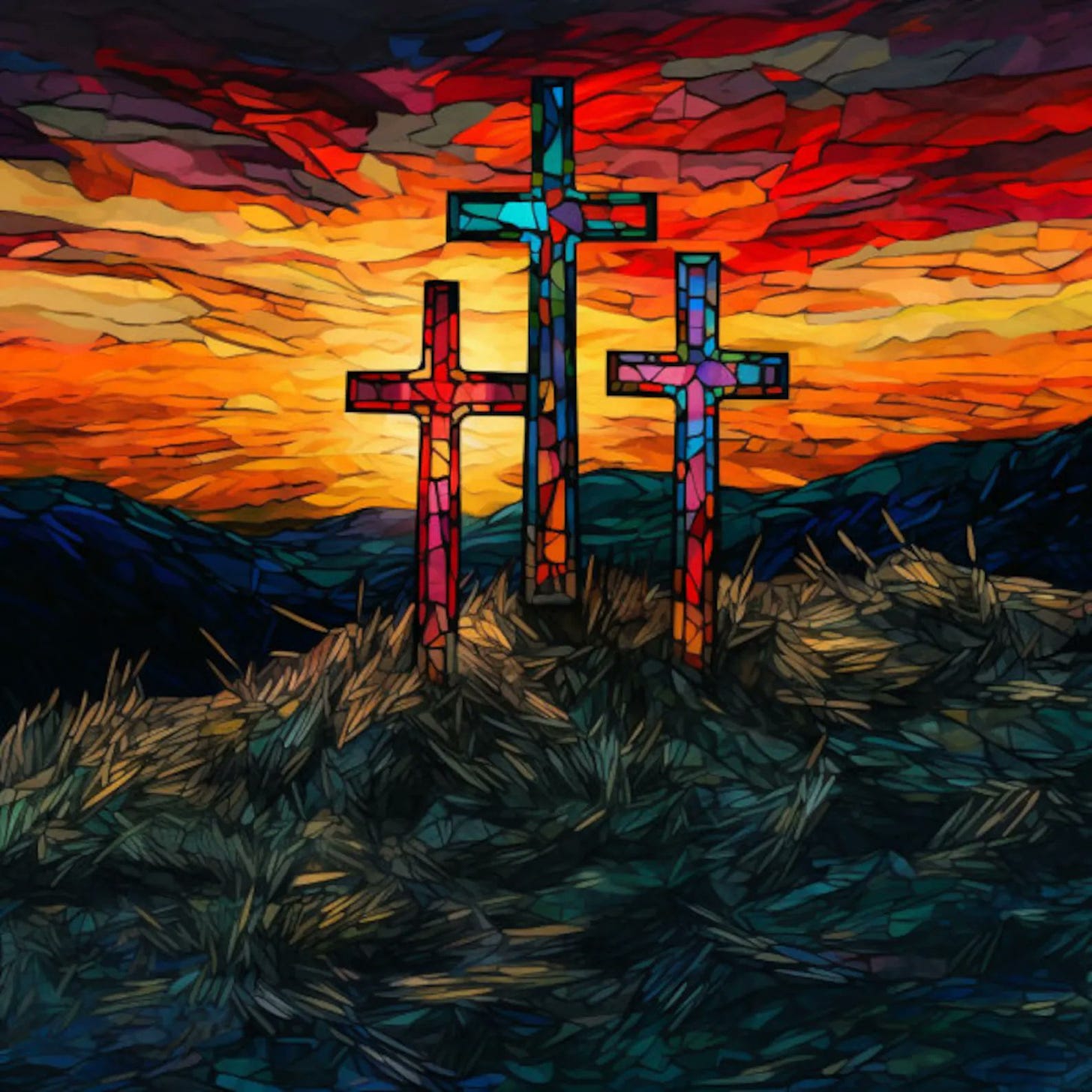Good Friday: Where Did Jesus Go After He Died?
Jesus' promise to meet the thief in paradise seems to conflict with the Apostles' Creed
The Apostles Creed appears to be at odds with Jesus promise to the thief on the cross. Jesus told the thief, “Truly, I say to you, today you will be with me in paradise” (Luke 23:43). Yet the Apostles’ Creed says, “He descended into hell.”
So which is it? After Jesus died on the cross, did his spirit go to hell or paradise?
To answer this question, we need to address the OT’s concept of the afterlife. One of the best things I’ve read on this subject is Samuel Renihan’s book, “Crux, Mors, Inferi: A Primer on the Descent of Christ” (which sounds intimidating but is actually very clear and accessible). I am indebted to Renihan in what follows.
The Three Realms of the Cosmos
From the earliest pages of Scripture, the Bible presents a reality that transcends human perception, where the entire cosmos is divided into three realms: (1) heaven, (2) earth, and (3) Sheol (the “underworld”).
These three realms represent not only physical but spiritual dimensions of existence, each imbued with profound theological significance, particularly the “descent” of Christ.
Let’s make some distinctions. The cosmos includes both visible and invisible realms (Gen 1:1, Col 1:16). The visible realm consists of earth. This is the material domain of humanity.
The invisible realm has two parts. The first is heaven, the realm of God’s glory. The second is Sheol (or “underworld”), the realm “under the earth,” which is a shadowy domain of death.
Each of these realms has distinct purposes and inhabitants:
Heaven is the dwelling place of God’s glory where he is surrounded by angelic beings. This is depicted in Scripture as a place of overwhelming beauty and majesty. The earthly tabernacle and temple were patterned after this celestial throne room (Hebrews 8:5).
Earth is the realm of mankind, the center of God’s redemptive plan. The term “earth” may encompass the entire visible universe, though Scripture primarily focuses on earth as the unique habitation of human beings.
Sheol is the underworld, described as the realm of the dead. Before Christ, both the righteous dead and the wicked dead descended to Sheol, though they were segregated into two compartments. Sheol is the name for it in Hebrew, and Hades is the name for it in Greek. While Sheol is often associated with death in a general sense, the Scriptures present it as a real, albeit spiritual, location. The imagery of Sheol as “under the earth” serves as a metaphor for its spiritual separation from God’s glory, much like heaven is described as “above.”
The Underworld and the Afterlife
These two compartments are important (this is where I always got confused when I’d studied this before).
Renihan highlights the biblical teaching that death is the separation of the soul from the body (James 2:26). Sheol/Hades/Underworld is where everyone went when they died (before Christ came).
The righteous found rest in a place in Sheol known as Abraham’s Bosom (Luke 16:22). This place of comfort is also called paradise.
The wicked suffered in a place of Sheol reserved for torment (Luke 16:23). The deepest part of Sheol was a place of greatest torment, reserved for rebellious angels who sinned in particularly egregious ways (Gen 6:1-4, 2 Pet 2:4). This place is known as the abyss, or Tartarus.
The Thief in Paradise
This brings us back to the thief on the cross. Three men were crucified that day, which meant all three would have went to Sheol upon their deaths. The unrepentant thief would have gone to the place of torment. Jesus would have gone to the other part of Sheol, the place of comfort. And in response to the other thief’s faith, Jesus promised to meet him in paradise, the place of comfort.
This is what the Apostles’ Creed was referring to. When it says, “he descended into hell,” it’s referring to “Hades,” the realm of the dead, not hell as we commonly think of it, which is the lake of fire. Jesus did not descend into Sheol/Hades to experience torment. He did descend there to bind the strong man and plunder his house by rescuing the souls of God’s people (Luke 11:21).
At the fall (Gen 3), death was ushered into the world, making every human being subject to death. This means Sheol is a place from which no one could ever escape, though God had reserved a place of comfort for his faithful departed. When you died, you went to Sheol and were its prisoner.
Except Jesus. Christ was the only man to ever entered Sheol who was not subject to death, because he was without sin. And Christ was the only man to ever escape Sheol because he is the Author of Life and no grave could contain him. Further, since Christ died as covenant head, the “second Adam,” he died in our place, paying the penalty of death for all our sins and bearing the power of life for all who believe (Rom 5:12-21).
Through Christ’s death, God made a way for men and women under the condemnation of death to be pardoned through faith in Jesus. As an innocent man, Jesus was not under a spiritual death penalty. As a condemned man, Jesus offered his own life as a substitute for others. As the God-man, Jesus alone has authority to forgive sin. As the Author of Life, forgiven sinners are adopted as sons of God who inherit eternal life.
Thus, at his resurrection, Christ not only rose bodily from the grave, conquering death physically, Christ rose in resurrection power, having conquered death itself. In so doing, he emptied Sheol of the souls of his people, and safely delivering them into the presence of the Father.
The thief on the cross’ trip to paradise would have been a short trip, because on the third day, he left Sheol with all the other OT saints to be with the Father where they await the final resurrection at the return of Christ.
Future Proof Christianity Conference
The King’s Domain Conference, Future Proof Christianity, is right around the corner.
Have you registered yet?
I’d like to invite readers of this site to join us this May 8-10 in Ft. Thomas, KY, just across the river from Cincinnati. I’ll give you a personal tour of our new building. :)


Here’s five YUGE reasons to come.
The speaker lineup is top notch
Network with like-minded believers
Value for the money (only $120)
Two women’s breakouts (Betsy Mendel and Emily Foster)
Singles mixer
I don’t want to nag, but seriously, have you registered yet? If not, get that taken care of and we’ll see you in May!






Michael, great clarification... I just shared it.
I found this substack article insightful. It offers a compelling reconciliation of the Apostle's Creed with Jesus' promise to the penitent thief that He would be with him in paradise. Be blessed!